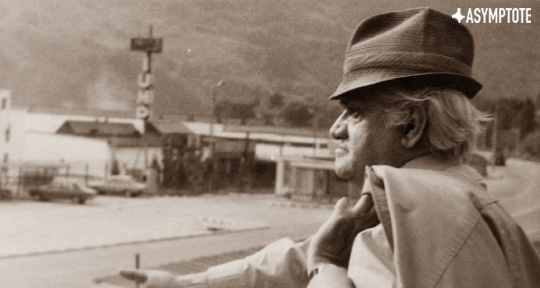Writing has always been a refuge of resistance for those living under oppressive political regimes, such as under the Romanian dictator, Nicolae Ceaușescu. Often, such writing creates a movement, a group whose literature has much in common, emblematic of the particular circumstances of its birth. In Romania, this was “desk drawer literature.” Yet, of course, writers within such movements also retain their individuality—and some more so than others. Whilst many authors of Romanian dissident literature exiled themselves in other European countries or the USA, I.D. Sîrbu remained in his native country. Little known in the English-speaking world, Sîrbu was a prolific, versatile, and unique writer of plays, short stories, and novels. In the following essay, Andreea Scridon, whose translations of Sîrbu’s selected short stories are forthcoming with AB Press, discusses his life, work, and fascinating singularity.
The phenomenon of subversive literature, either containing subversive content or written in subversive circumstances, is characteristic of twentieth-century Eastern Europe. In a nightmare that nobody predicted would ever end, writing continued to represent a flame in the cavern, a stubborn desire to keep actively participating in life, despite the forced degradation of the spirit by the regime in power. Romania’s dictator, Nicolae Ceaușescu, astutely aware of literature’s power of influence, issued a statement summarizing the attitude of the time: “It is to be understood, comrades, that we are the partisans, from the beginning to the end, of a MILITANT literature and we do not even conceive another kind of literature.”
It was in this context that “desk drawer literature” was born: literary work that was written for its “integrity,” as Solzhenitsyn puts it, and not for the ego boost of being published. Names that have now become iconic are those of writers lucky enough to publish in “the Free World”: Solzhenitsyn himself, Pasternak, and Milosz, to name a few. In Romania, too, those who wrote in exile had the great luck of enjoying freedom to publish successfully, in France and the USA, like Emil Cioran and Mircea Eliade, respectively. Other important names of Romanian dissident literature are Nicolae Steinhardt, Constantin Noica, and Paul Goma (who died just a few weeks ago from COVID-19 in Paris). All of these writers spent the majority of their lives either in jail or outside the borders of their home country, and stand out as mirific models in comparison to those that disappointed in reality: the many authors who claimed to have produced subversive writing and ultimately ended up not publishing anything well after the 1989 Revolution, or, similarly, those who only wrote against the communist regime after it had fallen and therefore no longer represented concrete danger. It must be noted that some suggest this perception is a myth intended to continue the work of marginalizing authors. It is difficult to define a figure that would suffice as “enough,” given the circumstances and various adjacent factors. READ MORE…

